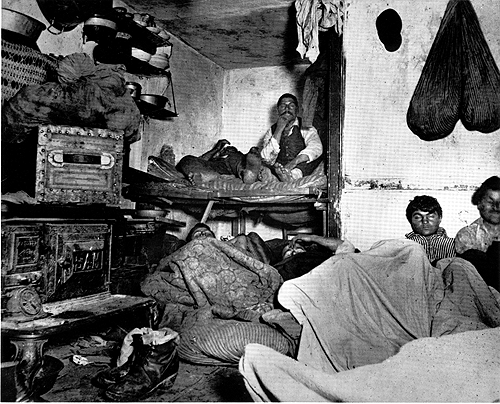

Many people living in nineteenth century society believed in the concept of Social Darwinism. According to Social Darwinism, humans were going through an evolutionary process in which the fittest would survive, and the weakest would perish. Obviously, the wealthy and successful members of society were the fittest, and the poor were the weak or unfit. Wealthy industrialists actively supported this concept as it reinforced their belief that their success in life was a product of their superiority over the inferior masses. Government or social intervention programs on behalf of the poor were inadvisable under the Social Darwinist belief. Such programs would enable the unfit to survive and reproduce, rather than allowing them to die out, naturally, on their own.
Brace's own Social Darwinist beliefs influenced the policies of the CAS during his administration. He believed that humans had developed through an evolutionary process, and was greatly concerned with the immense number of boys and girls floating and drifting about our streets, with hardly any assignable home or occupation, who continually swelled the multitude of criminals, prostitutes and vagrants. Brace feared that these dangerous classes would grow up without the skills, morals, and values that would enable them to become productive members of society. He feared that once these children reached adulthood, they would become a threat to social stability. Brace believed that society could be greatly changed, if not brought down, by a growing poverty class. Brace outlined these concerns and his position on how address them within society in his 1872 book The Dangerous Classes of New York and Twenty Years' Work Among Them.
Brace believed that reform of the poor was necessary to ensure social stability. He firmly believed that behavior could be shaped by environment, and was convinced that society could create "artificial social structures for improving the lives of the poor." He did not, however, believe in the possibility of reforming adults or in "indiscriminate almsgiving" which he condemned as perpetuating pauperism. His early missionary work among New York City's adult poor had convinced him that "to reform adults was well-nigh hopeless." As a result, Brace concentrated his efforts on reforming the children of the poor.
Brace's solution for reforming these children was to remove them from the "contaminating influences of their families" and place them in good Christian homes in the west where they could, through hard work and exposure to Christian values, grow up to be virtuous members of society. As a result of Brace's Social Darwinist beliefs, the CAS actively sought to physically remove children from the family environment that was believed to be responsible for their perilous condition, thereby eliminating the future threat these children may pose on society.